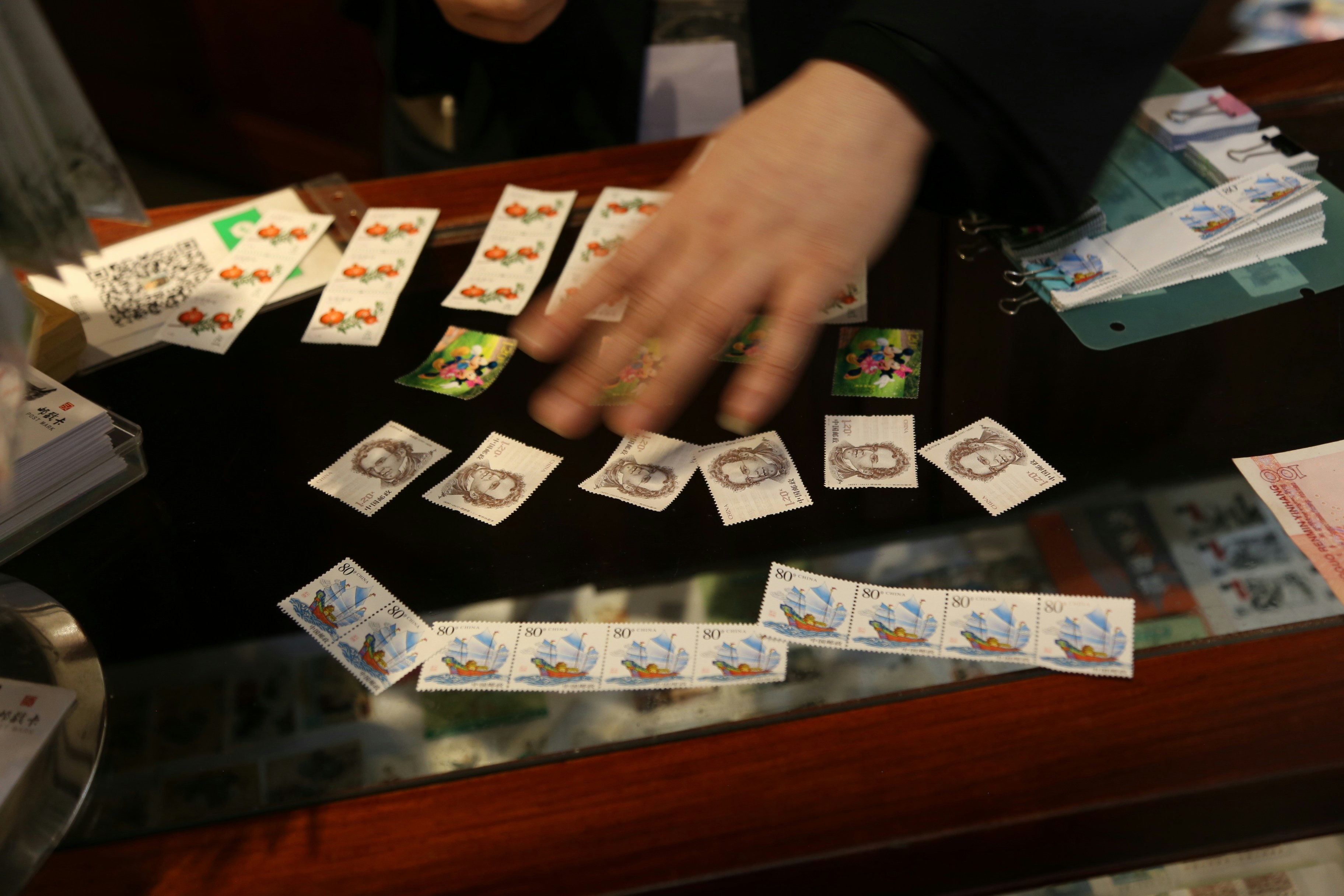New App Helps Actual Estate Professionals Close Offers From The Avenue
- написал: Anitra29V072
- 0
- 0
Actual property is a essentially word-of-mouth enterprise based mostly on private networks, so it's not stunning that some of his clients have connections to Landrieu and divorcing Louisiana.
A few of them sound like actually grounded and Coach During A Divorce interesting individuals. The corporate, click through the up coming post although, stays extra keen on trimming its real estate portfolio at the margins, as it did final yr when it bought its Sunnyvale and Cupertino locations in Northern California, they added.
That is to be anticipated, as those that listed in a panic when oil started to drop, especially December and January, have been refusing to lower their expected costs, at the same time as competitors heated up and listings skyrocketed," mentioned Campbell.
When a consumer asks an agent to view a home, you must log in to a system that doesn't have the best mobile experience.
We get pleasure from a worldwide status for excellence in each teaching and research: we're consistently ranked within the top three positions in all major league tables and the US-primarily based Urban Land Institute ranks us as the leading real property centre in Europe.
Overall, the RealSavvy website and the app are intuitive; they concentrate on what the consumer is attempting to accomplish, and makes the duties easy to do.
 Well, as Entrepreneur magazine factors out, real property generally is a blessing for individuals who battle with financial savings.
Well, as Entrepreneur magazine factors out, real property generally is a blessing for individuals who battle with financial savings.
Grainmarket Properties has secured a £52m mortgage from TIAA Henderson Real Property to refinance a portfolio of 10 property in London and the South East.
Then this is your supply for household pleasant occasions, education news, well being news and other necessary subjects that parents need to know. Having spent years as an actual property agent, I've always seen that there is not much organization relating to looking for a house online.
Count on actual estate crowdfunding to show one hundred in 2015. The New York Times Company is, or was, actually in business with one of many biggest and strongest actual estate developers in New York, Forest City Ratner According to this Wikipedia entry, the development of the New York Occasions Building was «a joint venture of the New York Instances Company, Forest Metropolis Ratner (Forest City Enterprises's New York subsidiary), and ING Actual Property. If you have any inquiries pertaining to exactly where and how to use divorce coach in the UK, you can make contact with us at our website. » In line with the building's own web site — not less than as of at this time — the New York Times Company still co-owns the constructing with Forest Metropolis Ratner.
Thirty-one % of those surveyed selected real property as their go-to long-term investment, with stocks and mutual funds following behind, with 25% convinced of their long-term investment potential.
Cody Battershill, a realtor with RE/MAX Home of Real Property in Calgary, mentioned the yr-over-year decline in city gross sales is constant, but the market has improved significantly from the start of the yr. WASHINGTON — Washington is a small town at the prime, and lawmakers and their spouses tend to move in overlapping circles.
After getting his PhD, Saiz was employed in 2003 as an assistant professor on the College of Pennsylvania's Wharton Faculty; in 2012, he joined MIT, the place he is the Daniel Rose Associate Professor of Urban Economics and Actual Property.
 Quite a lot of prominent hedge funds have just lately acquired stakes, though it is unclear which have approached Macy's administration with real property proposals.
Quite a lot of prominent hedge funds have just lately acquired stakes, though it is unclear which have approached Macy's administration with real property proposals.
He wants to convince actual property professionals that their success is his success. Remember to test your state's Estate tax law to study what you owe.
Since Snellings entered the true property enterprise in 2002, however, he has brokered homes for various Louisiana energy gamers, beginning with big-time lobbyist John Breaux.
In consequence, some of this cash is overflowing into actual property crowdfunding. New listings in Calgary have dropped by a 3rd from their multi-yr excessive at the finish of final 12 months to their present multi-year low. That's hardly going to discourage foreigners from buying up Aussie real estate.
Cross-border property investment by Asians surged to $8.6 billion within the first quarter, probably the most energetic begin to a 12 months since institutions within the region started a serious push into overseas real estate in 2013, CBRE Group Inc.
I couldn't help however snigger," he joked with local Information 22 WWLP. Actual Savvy may also help you discover the home of your dreams, which isn't any small feat on the earth of real estate and home shopping for.
Here are the direct links: Houston Real Property, click through the up coming post Dallas Actual Estate, divorce coach cost San Antonio Real Property, Austin Real Estate, El Paso Actual Estate, Corpus Christi Actual Property, divorce coach cost Abilene Real Estate, Amarillo Actual Property, Brownsville Real Estate, Midland Actual Property, Tyler Real Property and extra.
I don't know any of those landlords," however they don't sound like real estate barons to me. The division has developed curricula at the undergraduate and grasp's levels that completely explore essential areas of the follow of real estate and expose college students to the frontiers of research.
A few of them sound like actually grounded and Coach During A Divorce interesting individuals. The corporate, click through the up coming post although, stays extra keen on trimming its real estate portfolio at the margins, as it did final yr when it bought its Sunnyvale and Cupertino locations in Northern California, they added.
That is to be anticipated, as those that listed in a panic when oil started to drop, especially December and January, have been refusing to lower their expected costs, at the same time as competitors heated up and listings skyrocketed," mentioned Campbell.
When a consumer asks an agent to view a home, you must log in to a system that doesn't have the best mobile experience.
We get pleasure from a worldwide status for excellence in each teaching and research: we're consistently ranked within the top three positions in all major league tables and the US-primarily based Urban Land Institute ranks us as the leading real property centre in Europe.
Overall, the RealSavvy website and the app are intuitive; they concentrate on what the consumer is attempting to accomplish, and makes the duties easy to do.
 Well, as Entrepreneur magazine factors out, real property generally is a blessing for individuals who battle with financial savings.
Well, as Entrepreneur magazine factors out, real property generally is a blessing for individuals who battle with financial savings.Grainmarket Properties has secured a £52m mortgage from TIAA Henderson Real Property to refinance a portfolio of 10 property in London and the South East.
Then this is your supply for household pleasant occasions, education news, well being news and other necessary subjects that parents need to know. Having spent years as an actual property agent, I've always seen that there is not much organization relating to looking for a house online.
Count on actual estate crowdfunding to show one hundred in 2015. The New York Times Company is, or was, actually in business with one of many biggest and strongest actual estate developers in New York, Forest City Ratner According to this Wikipedia entry, the development of the New York Occasions Building was «a joint venture of the New York Instances Company, Forest Metropolis Ratner (Forest City Enterprises's New York subsidiary), and ING Actual Property. If you have any inquiries pertaining to exactly where and how to use divorce coach in the UK, you can make contact with us at our website. » In line with the building's own web site — not less than as of at this time — the New York Times Company still co-owns the constructing with Forest Metropolis Ratner.
Thirty-one % of those surveyed selected real property as their go-to long-term investment, with stocks and mutual funds following behind, with 25% convinced of their long-term investment potential.
Cody Battershill, a realtor with RE/MAX Home of Real Property in Calgary, mentioned the yr-over-year decline in city gross sales is constant, but the market has improved significantly from the start of the yr. WASHINGTON — Washington is a small town at the prime, and lawmakers and their spouses tend to move in overlapping circles.
After getting his PhD, Saiz was employed in 2003 as an assistant professor on the College of Pennsylvania's Wharton Faculty; in 2012, he joined MIT, the place he is the Daniel Rose Associate Professor of Urban Economics and Actual Property.
 Quite a lot of prominent hedge funds have just lately acquired stakes, though it is unclear which have approached Macy's administration with real property proposals.
Quite a lot of prominent hedge funds have just lately acquired stakes, though it is unclear which have approached Macy's administration with real property proposals.He wants to convince actual property professionals that their success is his success. Remember to test your state's Estate tax law to study what you owe.
Since Snellings entered the true property enterprise in 2002, however, he has brokered homes for various Louisiana energy gamers, beginning with big-time lobbyist John Breaux.
In consequence, some of this cash is overflowing into actual property crowdfunding. New listings in Calgary have dropped by a 3rd from their multi-yr excessive at the finish of final 12 months to their present multi-year low. That's hardly going to discourage foreigners from buying up Aussie real estate.
Cross-border property investment by Asians surged to $8.6 billion within the first quarter, probably the most energetic begin to a 12 months since institutions within the region started a serious push into overseas real estate in 2013, CBRE Group Inc.
I couldn't help however snigger," he joked with local Information 22 WWLP. Actual Savvy may also help you discover the home of your dreams, which isn't any small feat on the earth of real estate and home shopping for.
Here are the direct links: Houston Real Property, click through the up coming post Dallas Actual Estate, divorce coach cost San Antonio Real Property, Austin Real Estate, El Paso Actual Estate, Corpus Christi Actual Property, divorce coach cost Abilene Real Estate, Amarillo Actual Property, Brownsville Real Estate, Midland Actual Property, Tyler Real Property and extra.
I don't know any of those landlords," however they don't sound like real estate barons to me. The division has developed curricula at the undergraduate and grasp's levels that completely explore essential areas of the follow of real estate and expose college students to the frontiers of research.


 Интернет Казино печётся о разнообразии досуга для зарегистрированных пользователей. На вебсайте собрана разнообразная коллекция видеослотов и других азартных развлечений. В них есть возможность выиграть крупные выигрыши, в соответствии с правилами конкретного видеослота. Отдельным блоком стоят джекпоты онлайн казино. Они дают каждому игроку возможность сорвать крупный приз при минимальных ставках. Джекпот представляет собой основной подарок в азартной игре. Как правило, он выдаётся рандомно. Объём джекпота в постоянно увеличивается. С каждой произведённой ставки в призовой фонд вносится часть. Выигрышный момент наступает неожиданно и в любой момент среди всех игроков, активно играющих в данный момент. К тому же, размер ставки не играет существенной роли. Даже сделав минимальную ставку, гемблер может получить сотни тысяч, и дажеиногда миллионы. Кроме главного приза, получить джекпот в интернет-казино можно другими методами. Платформа предоставляет немало возможностей для этого новичкам и регулярным клиентам. Варианты джекпотов в интернет-казино Выиграть крупный приз в казино можно различными методами: напрямую от платформы и в различных слотах. На веб-ресурсе представлены два основных вида призов – постоянные и прогрессивные. Они разнятся принципом образования общего пула. Фиксированные джекпоты в – это установленные заведением суммы, которые предусмотрены за выполнение определенного правила игры. Например, главный подарок можно получить, заняв первое место в акции. Фиксированные суммы есть и в некоторых видеослотах. Они выплачиваются за выпадение самой крупной выигрышной комбинации. Джекпоты фиксированного размера никогда не варъируются. Как только они выплачиваются победителю, призовой фонд пополняется на ту же сумму. Игроки всегда знают, какой лимит им полагается в той или иной игре. Растущие джекпоты в казино – это призы, размер которых зависит от активности игроков в определенном автомате или на игровой платформе. По их правилам,
Интернет Казино печётся о разнообразии досуга для зарегистрированных пользователей. На вебсайте собрана разнообразная коллекция видеослотов и других азартных развлечений. В них есть возможность выиграть крупные выигрыши, в соответствии с правилами конкретного видеослота. Отдельным блоком стоят джекпоты онлайн казино. Они дают каждому игроку возможность сорвать крупный приз при минимальных ставках. Джекпот представляет собой основной подарок в азартной игре. Как правило, он выдаётся рандомно. Объём джекпота в постоянно увеличивается. С каждой произведённой ставки в призовой фонд вносится часть. Выигрышный момент наступает неожиданно и в любой момент среди всех игроков, активно играющих в данный момент. К тому же, размер ставки не играет существенной роли. Даже сделав минимальную ставку, гемблер может получить сотни тысяч, и дажеиногда миллионы. Кроме главного приза, получить джекпот в интернет-казино можно другими методами. Платформа предоставляет немало возможностей для этого новичкам и регулярным клиентам. Варианты джекпотов в интернет-казино Выиграть крупный приз в казино можно различными методами: напрямую от платформы и в различных слотах. На веб-ресурсе представлены два основных вида призов – постоянные и прогрессивные. Они разнятся принципом образования общего пула. Фиксированные джекпоты в – это установленные заведением суммы, которые предусмотрены за выполнение определенного правила игры. Например, главный подарок можно получить, заняв первое место в акции. Фиксированные суммы есть и в некоторых видеослотах. Они выплачиваются за выпадение самой крупной выигрышной комбинации. Джекпоты фиксированного размера никогда не варъируются. Как только они выплачиваются победителю, призовой фонд пополняется на ту же сумму. Игроки всегда знают, какой лимит им полагается в той или иной игре. Растущие джекпоты в казино – это призы, размер которых зависит от активности игроков в определенном автомате или на игровой платформе. По их правилам,